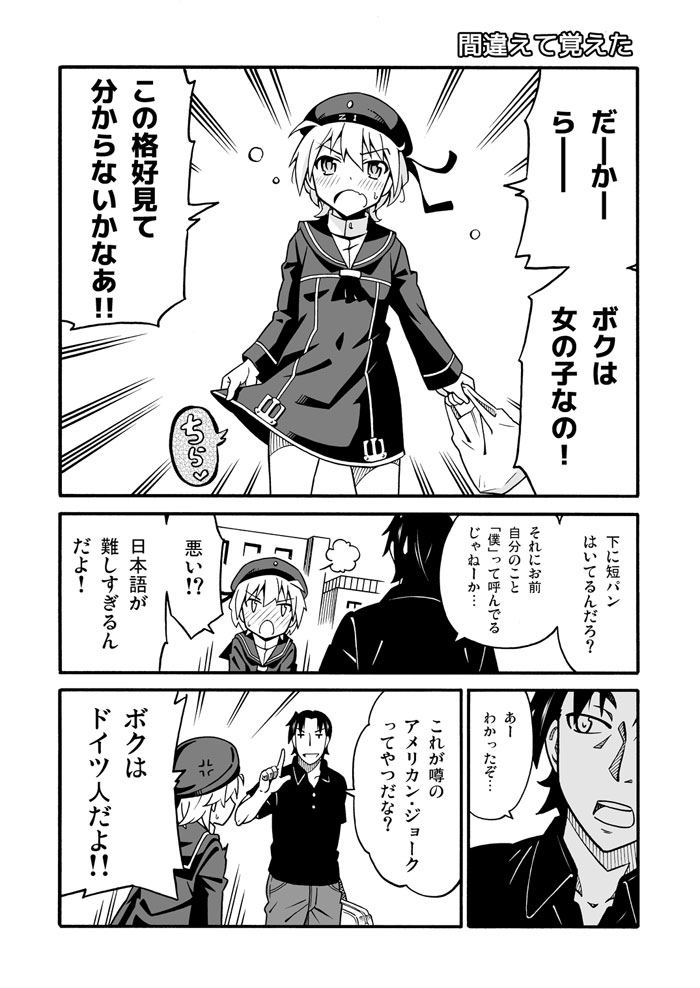
Artist's commentary
艦これの日常漫画53
艦これの日常漫画1→pixiv #36795848 »
【コメント】HAHAHAナイスジョーク
【宣伝】4/21:コミ1新刊ラブ☆これVol.3早くも予約開始です メロン→http://p.tl/Y_Vt とら→http://p.tl/9Nyo サンプルは後日
3/29:ヴェールヌイ編を収録した「ラブ☆これVol.2」が同人ショップに入荷しました。Vol.1も合わせてぜひ。
サンプル→pixiv #42322761 » メロンブックス→http://p.tl/yfBe とらのあな→http://p.tl/06hE
